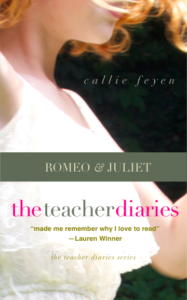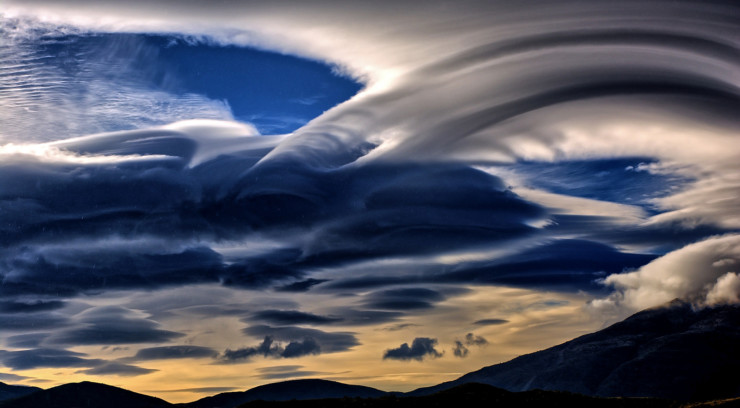“What’s the difference between being scared and being in a mystery?” I asked my second and third grade classes at the beginning of October. We are reading Cam Jansen: The Mystery at the Haunted House, and before we began the haunted tale, I wanted them to think about this word — mystery — and whether or not it’s different than being afraid.
We decided that while we might be afraid while we’re experiencing something mysterious, we aren’t so afraid that we walk (or run) away from it. We can still think. We can stand in that mystery. Maybe we can even create something.
I reminded my classes of a story we read together last year, The Little Old Lady Who Wasn’t Afraid of Anything. This might be my favorite Halloween story of all time. It’s about a woman who’s walking home one fall evening when shoes, then pants, a shirt, and eventually a scary pumpkin head follow her. She keeps telling these articles of fashion, “I’m not afraid of you!” until the pumpkin head yells, “Boo!” The lady runs home, locks the door, and rocks herself in her rocking chair. In the quiet of her home she remembers she is not afraid. And so she opens the door to announce this.
“Then what will we do now?” they whine.
The lady thinks for a moment, and comes up with an idea. The next morning, there is a scarecrow in her yard — those clothes and that pumpkin simply needed a purpose. Once the little old lady figured out that she wasn’t afraid, she needed to discover what she could do with her former fear. Walking through that process? That’s mystery.
Try It
For this week’s prompt, think about something you’re afraid of. Enter into the mystery and see what you do with it.
Featured Poem
Thanks to everyone who participated in our recent poetry prompt. Here’s one from Carol Billings that we enjoyed.
come with me darling and we can go sailing
together alone on the bountiful sea
the ocean seems empty the night breeze if rising
this fresh wind is teasing me come sail with me
Oh Johnny dear Johnny green eye like deep water
how can I go sailing with you on the sea?
What would we do there and how can we live there
alone in the silence pray, how could it be?
Don’t worry my darling, my life is the ocean
we’ll carry some stores : whiskey water and food
will fish in the moon light make love under blue skies
across the vast ocean and no one to see
Oh Johnny dear Johnny your warm arms invite me
I want to go with you across the deep sea
but to leave my poor family my mother and father
my dear little sister and brother’s three!
LISTEN my darling please take this gold ring
be my family…YOU know how I love you
and I can’t bear to leave you but my mother the
ocean is calling for me.
Good bye to my Mother, farewell to my father
good by to my sister and brothers
my curly haired sailor, deep eyes like sea water
has captured my heart and I’m off to the sea.
Photo by Mark Chinnick, Creative Commons, via Flickr. Post by Post by Callie Feyen, author of The Teacher Diaries: Romeo and Juliet.

- Poetry Prompt: Courage to Follow - July 24, 2023
- Poetry Prompt: Being a Pilgrim and a Martha Stewart Homemaker - July 10, 2023
- Poetry Prompt: Monarch Butterfly’s Wildflower - June 19, 2023

Donna says
Such an interesting question and prompt! Can’t wait to see what treasures come to the comment boxes!
It’s great to see Carol’s poem here! It reads like a bouyant song. Wonderful!
Donna Falcone says
what frightens me most?
a crisp undented pillow
lying next to mine
Richard Maxson says
Fearful and sad haiku, Donna. It’s powerful to say something without actually saying it.
Donna says
Thank you Richard.
Dave Malone says
Agreed. Fabulous haiku!
Donna says
Thanks!
Donna says
Thanks, Dave!
Callie Feyen says
Yikes. Indeed. I think of that every time Jesse travels.
Richard Maxson says
I so liked Carol’s seafaring song.
Richard Maxson says
I Am Not One Who Fears the Night
I am not one who fears the night;
It is in darkness I began;
It hones the edges of my sight.
I’m told it is the ghoul’s delight;
and though I’ve walked there in the rain,
I am not one who fears the night.
How well its sable scrim makes bright
The stars in the empyrean.
It hones the edges of my sight,
To find the silent night bird’s flight.
Though wild thoughts run as wild thoughts can,
I am not one who fears the night.
Its muted hues inspire in spite
of days advantage, days bright span.
It hones the edges of my sight.
What evening gives me I ghostwrite,
Moon’s midnight lake, the owl’s wingspan.
I am not one who fears the night.
It hones the edges of my sight.
Donna says
This is so rich! I love the way you contrast darkness and light to express the necessity of each for the other. Wonderful! Difficult form, too!
Callie Feyen says
First, reading this poem I feel like I’m marching, and marching makes me feel powerful. As one who is a tad afraid of the dark, I appreciate the feeling of power while reading this.
Second, I like all that the darkness gives in this poem: sight, spite, even life!
Dave Malone says
Wow. Another amazing poem. As Donna says, it’s a difficult form. I think the villanelle is so hard to pen and not make it trite. You certainly aren’t trite. Bravo.
Richard Maxson says
Thank you, Dave.
Dave Malone says
Callie, I love that you asked your classes, “What’s the difference between being scared and being in a mystery?”What an amazing response. I was struck by this, “We can stand in that mystery.” I couldn’t let that phrase or idea go. So I ventured back to my childhood and created a fictional event. Though “We Can Stand in the Mystery” was my original title, I changed it to “Mystery.” This is just a second draft, and it’s still rough, but here we go…
Mystery
Above the back yard
in the west, the sun was absent
yet an orange glow on sparse clouds,
thumbprints dabbed in paint.
Bone-cold autumn breeze
against our down jackets,
three kids traipsing
the dry creekbed.
Cottonwoods swayed, creaked,
and the traffic of white heads
bobbing in warning, themselves trudging
in hallways of evening, for tea,
perhaps the shelter of bed.
In the narrow clearing,
flat as a shin bone,
we marched three astride.
Ahead, the arroyo rose slightly,
a tan fedora of prickly pear
and red-berried sumac.
Graves there.
Everyone said.
Kansa and rancher together
hugging deep in prairie grass.
The light grew dim
as we climbed. The wind
absent now, like a tooth.
We carried the stray dog’s body,
shovels. We weren’t afraid really.
Richard Maxson says
I wouldn’t change this too much from the way it is here. The imagery is so perfectly matched, like gears, to the poem, You do create fine machines.
The ending was heart wrenching.
Dave Malone says
Thanks so much, Richard. I read Callie’s post to my spouse last night (what a delight to read it aloud), and then the poem. My wife, too, commented that the ending saddened her–I appreciate these responses–for you never know how a person will be moved (or unmoved) by one’s poem, right? 🙂